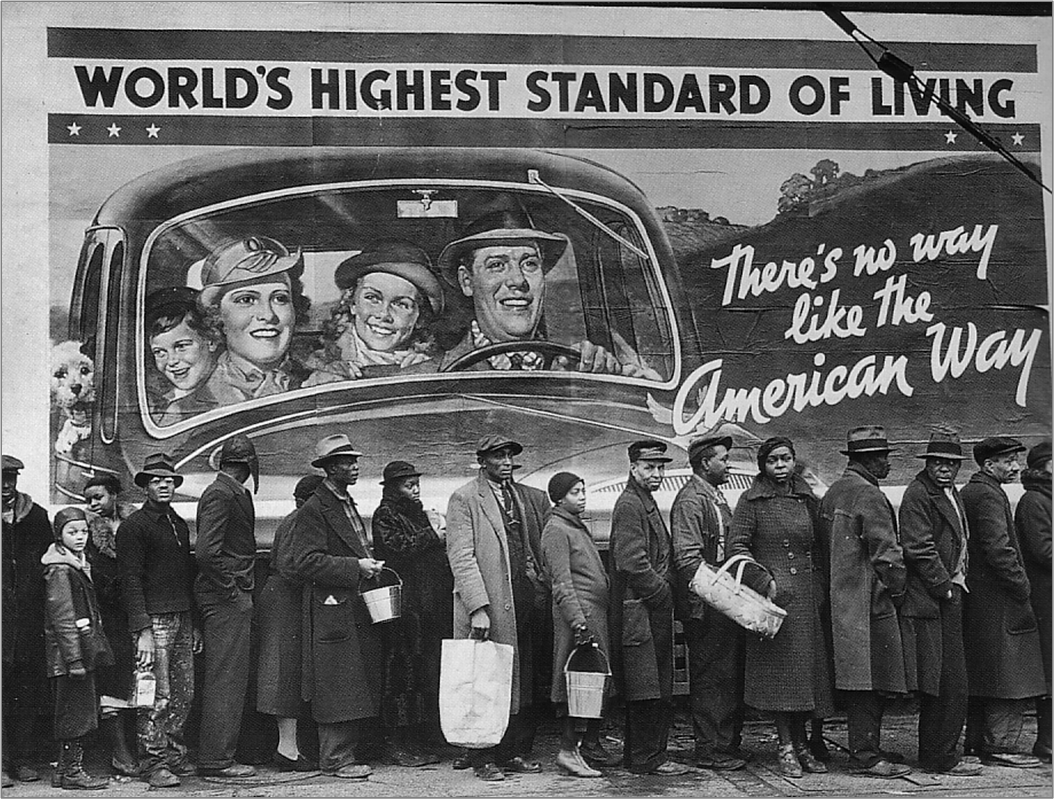More languages
More actions

The Great Depression was a severe economic depression between 1929 and 1939 that affected all market-based capitalist economies. It was predicted as early as February 1928 by the Central Committee of the CPUSA.[1] The USSR experienced immense economic gains during this time, since rational planning took the place of market mechanisms[2] and New Deal Democratic types depended heavily on Soviet grain imports.
Between 1929 to 1933, industrial production in the Soviet Union increased by 67% and wages doubled while unemployment dropped to 0%.[1]
The failure of capitalist countries and the success of socialist ones during the Great Depression led to a major rise in socialist movements across the world, although it also contributed to the rise of fascism in Weimar Germany.[3]
References
- ↑ 1.0 1.1 William Z. Foster (1952). History of the Communist Party of the United States: 'The Communist Party and the Great Economic Crisis (1929-1933)'.
- ↑ R. Dutt (2009). Fascism and Social Revolution. Wildside Press.
- ↑ Political movements and social change
